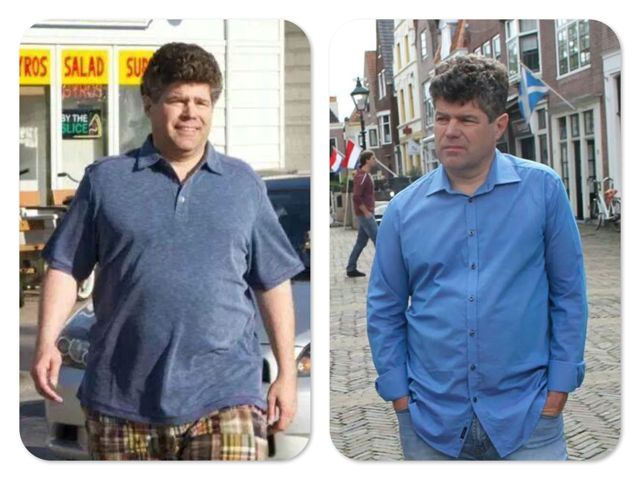By John Y. Brown III, on Tue Sep 2, 2014 at 12:00 PM ET  Sadly, leaving for home. Sadly, leaving for home.
Loved Germany, the Netherlands and Belgium.
We get back home in about 14 1/2 hours.
Which is approximately 375 kilometergramhours –using the metric system. Or something like that. Mostly, I think that calculation just means I’m a thick-headed American.
Guten Tag! Which I hope means “Thank You!” But I think may mean “Hello” and I know, in the states, means something that you should try to avoid in your diet. But it’s the best I can do. And reinforces my thick-headed American status.
Thanks ya’ll!! We had a really great ol’ time. Even though we could tell we got on your nerves sometimes and you thought we were too loud and messy. We get that a lot. So you probably are right about that. Sorry. And thanks for everything!
And glad to see that whole thing with East Berlin and that big wall you knocked down is working out so well. It just made sense. If we have learned anything from our travels it’s that people are about the same everywhere. They just talk different, and like I said before, get irritated by us because we are too loud and messy.
Again, Guten Toten! Or something like that. We sure had a good tine and hope we get to come back!
===
So glad to be home after our trip abroad.
“Home is the place where, when you go there, they have to take you in after you get your luggage, go through security, clear customs, re-check your luggage domestically, clear security again and make your connecting flight in Jersey.”
–Robert Frost (with my paraphrasing)
===
We have yet to take a family trip that we could fully afford.
Or one that didn’t leave us more personally enriched.
Travel is like that.
===
Waiting to merge into the morning traffic…Is when you know that your vacation is officially over.
===
Sometimes… on a night like tonight, if you’ve ever had the privilege of visiting Amsterdam, you miss not being in Amsterdam and wish you could hop in your car and head back to Amsterdam and arrive there in about 15 minutes, provided traffic isn’t bad.
On other nights, I can’t really say what you feel like.
This is my first night home after visiting Amsterdam. And this is the only feeling I am having and it’s pretty unequivocal and strong. Heck, there may not even be another kind of reaction. Except wishing you’d stayed in Berlin so you don’t miss Amsterdam so much.
By Greg Harris, on Tue Sep 2, 2014 at 10:00 AM ET  Hillary Clinton raised eyebrows recently with her apparent dig at President Obama: “Don’t do stupid stuff is not an organizing principle.” Because she is a Clinton, it should be assumed this was not a slip. And because she is Hillary Clinton, it should not be forgotten that she voted in support of the 2002 resolution to go to war against Iraq. Hillary Clinton raised eyebrows recently with her apparent dig at President Obama: “Don’t do stupid stuff is not an organizing principle.” Because she is a Clinton, it should be assumed this was not a slip. And because she is Hillary Clinton, it should not be forgotten that she voted in support of the 2002 resolution to go to war against Iraq.
The war in Iraq was a colossal tragedy for many reasons: the staggering loss of Iraqi civilian life; the mental and physical casualties ensured by American soldiers whose needs to this day go under-addressed; Post-911 mission creep when the American desire to strike back against terrorism was manipulated and misdirected by a President and his neo-con handlers.
This essay is not an attempt to re-litigate the Iraq war. That verdict has already been rendered. But the aftermath of this messy post-Iraq geo-political realignment has led me to begrudgingly veer towards Clinton’s assertion that a new set of organizing principles is needed to navigate this complicated world. There is a glaring need for muscular global strategy on which America must lead.
For the tragedy of Iraq also plays out today in the emergence of ISIL – a well financed, well governed and military savvy operation that is establishing a base of operations from which to pursue a caliphate that unifies the Islamic world—albeit, a type of world that most Muslims reject.
An under-reported insight on the growing appreciation of this threat is that the Obama Administration started referring to this organization as “ISIL” instead of ISIS. This marks the Administration’s recognition that ISIL not only has ambitions beyond Iraq and Syria, but also the Levant (the “L” of ISIL), which includes Palestine, Jordan, Lebanon and most alarming, Israel.
America does not have the luxury of W’s division of good versus “evil-doers.” Unfortunately, we will have to choose among worse evils, and create the kinds of coalitions needed to keep extremist elements in check.
Aside from the aforementioned tragedies of the Iraq War is the need to understand that America and her allies were probably safer when the repugnant Saddam Hussein was in power in Iraq. Furthermore, we are probably safer with Assad in power in Syria. Just as in WWII we had to form unholy alliances with the likes of Stalin’s Russia—as brutal a dictator there ever was—in order to defeat the global designs of a genocidal Nazi dictator, we now must keep in check a global terrorist organization whose desire, and cruelty to match, is to purge the Middle East (and beyond) of the non-faithful.
New Organizing Principles
Under new organizing principles, our ability to halt the most dangerous global threat is to join forces with less seemly partners that are equally motivated to keep in check this threat, and that includes the likes of Egypt, Iran, Syria, Saudi Arabia and Russia.
We also must reconsider American troop deployment. Today, of some 160,000 American troops deployed overseas, the good majorities are in Europe and East Asia. This geography of American deployment does not complement the geography of today’s emergent global threat. For example, we currently are downsizing our operations in Afghanistan, which likewise reduces American military capability near a nuclear Pakistan that has long been a safe haven for terrorists.
America must also unify our allies and enlist their strategic leverage over our gravest threats. We must first acknowledge the threat, and then plot global response. Publicly, at least, the effort seems haphazard, and insufficient to the cause of defeating the greatest terrorist threat to date—one that has an army, international recruits (who can travel in and out of the West), and vast real estate for a base of operations.
While the French take to the streets to protest Israel, or Russia focuses on Crimea, the larger looming danger that is ISIL takes a backseat to fragmented and parochial interests. This must change. And America must take the lead in rallying the world against an emergent terrorist state that poses a potential grave threat against our own safety and the safety of our currently unfocused allies.
By John Y. Brown III, on Mon Sep 1, 2014 at 12:00 PM ET  This is kind of personal, and I have never talked about it before but here goes. This is kind of personal, and I have never talked about it before but here goes.
We all know what “Aha moments” are –when we have clarity of thought about something that has confused us and it finally and suddenly makes sense. The obvious explanation breaks through to us.
Well, I think for most people –based on what I have read –these “Aha moments” are brief sensations lasting only a few seconds and happen only rarely.
But for me, they typically last 4 or 5 minutes –or longer. And one time in 1992 I had an “Aha moment” that lasted over an hour. (I was taking Dramamine. But still.) I also have them frequently –even multiple times a day.
By John Y. Brown III, on Fri Aug 29, 2014 at 12:00 PM ET Here is my “Before” alongside my future “After” pic.
About 6 months from now….while thinking about how much better I look with all that weight off, especially when I stand on a rock and look out over the ocean while wearing faded torn jeans with a tan and long hair with the wind blowing through it and a stylish watch in case I want to know what time it is.

Serious before and after:

By John Y. Brown III, on Thu Aug 28, 2014 at 12:00 PM ET  My advice to young people entering the workforce. My advice to young people entering the workforce.
Don’t be intimidated. The competition is long on resume and first impression but short on practical usefulness and follow through.
If you can write and speak in complete sentences, respond to emails and phone calls within 24 hours, be courteous and appropriate, show up for work on time and don’t leave until you are supposed to and do all these things for three consecutive weeks and then keep doing them daily after that, you will be in the 98th% percentile and have a long and promising future in the work world.
Be patient with yourself –and with your colleagues. You have what it takes. Just do what is in front of you consistently and conscientiously and you’ll be fine. In fact, you will be extraordinary.
By John Y. Brown III, on Wed Aug 27, 2014 at 12:00 PM ET  A call to action. A call to non-lameness. A call to action. A call to non-lameness.
Is it really possible that there are a few people still out there who find it downright giggle-worthy to send other people on Facebook a private message pretending to be someone else –someone who is younger and of the opposite sex— in order to fake a romantic interest to see what the person on Facebook will say?
It was funny the first 3 or 4 times. The next dozen or so times seemed to be when this prank seemed to crest in raw hilarity and start to slowly decline so that by the 70th or 80th time it has been tried on you, you don’t even get annoyed any more at these pranking individuals but have instead started to worry for their mental health and comedic IQ.
Look, when I was younger my generation had some super lame pranks we repeated long after we should have been embarrassed for ourselves. There was the prank call asking “Is your refrigerator running” and after an affirmative answer we would suggest our victim be careful not to let it “run” out the door. Get it? Run as in operating and run as in motion. And there was the prank call to a bowling alley asking the weight of the bowling balls as a set up for a painfully lame and sophomoric genital joke.
And these jokes got repeated so often and for so many years that I worried that if a superior life form existed in our solar system and got wind of this repeated prank, they would write off our entire planet forever as a worthless species.
These jokes were terrible. Just really awful and But, hey, all we had for entertainment was Pong so it isn’t surprising that our wit was running at about the same speed.
But the younger generation, who I am assuming is responsible for these faux Facebook flirt messages, my God. I mean, c’mon! I know you are supposed to be the first generation in American history who had a lesser standard of living than your parents. But that doesn’t mean you have to be the first with a lesser sense of humor. There is no excuse for that and you are going to have to dig down and ask more of yourselves when trying to make a funny.
Geez. Look at me. I’m an old man writing long ridiculous Facebook posts for laughs and I have been doing it for 3 years now. I admit it is a lame use of time but can you imagine how much lamer it would have been if I had spent all that time sending fake private messages to some stranger on Facebook who may not realize i I’m really not a 21 year old ingenue?
You have to do better young wisecrackers and comedic miscreants! And I know you can do it. Stretch yourselves! Get out of your comfort zone. Look at the two old jokes from my generation and study them as building blocks for new lame jokes that won’t be so humiliating to your generation as these fake Facebook flirts. You can do it. You have what it takes. The time is now. And I am real —not a fake teenage girl. And even if I were pretending to be a young breathless girl right now flirting with a stranger on Facebook, that not even you—if you were honest with yourself–would think it was funny.
Let’s commit to coming up with a new Facebook prank–that isn’t inexplicably lame. Together we will make sure that your generation, material measurements notwithstanding, will never be lamer than your parent’s generation. I am that generation. And trust me, we are pretty darned lame.
By W. Carlton Weddington, on Wed Aug 27, 2014 at 10:00 AM ET “Ex-inmates life chances shrink because few institutions or programs are prepared to give them the tools and job training to get work and become productive citizens. Many become burdens to their families, and some end up homeless. A good number of ex-inmates develop mental problems, which often go untreated.”
— Come on People, by Bill Cosby and Dr. Alvin Poussaint.
 Nationally, 1600 men and women are released from prison each day. Many will return to communities throughout the country with no more education, programming or sense of purpose than when they arrived to prison. The burden to help and service these individuals falls on the public. Locally, the state of Ohio boasts to be one of the nation’s largest prison systems and releases more than 28,000 ex-offenders each year. However, the Ohio Department of Rehabilitation and Corrections (ODRC) has failed Ohio and Ohioans with its lax and meager standards in operation and programming for re-entry. Nationally, 1600 men and women are released from prison each day. Many will return to communities throughout the country with no more education, programming or sense of purpose than when they arrived to prison. The burden to help and service these individuals falls on the public. Locally, the state of Ohio boasts to be one of the nation’s largest prison systems and releases more than 28,000 ex-offenders each year. However, the Ohio Department of Rehabilitation and Corrections (ODRC) has failed Ohio and Ohioans with its lax and meager standards in operation and programming for re-entry.
Ex-offenders are at the highest risk of committing a new crime or violating probation or parole immediately (within the first three months) following release from incarceration. The Bureau of Justice Statistics found that within the first six months of release, almost 30% were rearrested and the rate increases to 44% within the first year. If Ohio wants to be a leader among states, it must do a better job of taking care of a potential segment of its most valuable commodity – its human capital. The fragmentation of services, lack of coordination, and leadership must be addressed. A clear focus, not dispersing of energies is needed in order to solve this problem.
The support and help of the public and private interests should be sought for inmates who are in need and desire quality programming that will enable them to be successful upon release, because well equipped and determined ex-offenders are less likely to return to a life of crime and help build the economy. The creation of a successful re-entry program enhances public safety, reduces costs and improves lives. Families and advocacy groups need to be diligent in making the best use of the limited programming and resources the prisons offer, but ODRC needs to get its act together and start educating the individuals they house as if they mattered. The cumulative effects of poor prisons for communities in which these ex-inmates return to is one very good reason why recidivism perpetuates.
I refuse to believe that the practices of ODRC are the best Ohio can offer inmates and their families in 2014. I’m urging taxpayers, political leaders, inmates and their families alike to speak their minds about the affairs of rehabilitation and corrections in Ohio. Inmates who feel that society has no positive role for them are likely to conclude they have nothing to lose by abandoning the difficult path of study, self-discipline, and rehabilitation for the instant gratification of prison life that lead, to the continuation of the street life that brought them to prison.
By John Y. Brown III, on Tue Aug 26, 2014 at 12:00 PM ET  Smiling for pictures. A confession. Smiling for pictures. A confession.
My new family Facebook photo got me to thinking about something that has always been a little understood pet peeve of mine: Smiling for pictures.
The kind waiter at the restaurant offered to take a picture of us tonight and we stood together and posed along the street behind us. His fist shot caused him to hesitate and give me a look that said, “C’mon guy. What’s wrong? Smile for goodness sake.” So I tried harder for his second attempt and only modestly succeeded, as you can see. It’s not really a smile but more of a pose that tries to appear as a candid shot yet could be honestly mistaken by others for a smile. Like when you aren’t sure of a person’s name and when introducing them you slur what you think is their first and last name into an almost indecipherable gibberish name that you hope sounds close enough to fool everyone involved.
And that is about the best I ever seem able to do in photos. (Note; the other profile pic of me with just my wife is an exception and I believe I was honestly laughing about something when it was taken…so it really wasn’t a successful “posed smile.”)
And the “posed smile” is the problem for me. I don’t remember when it started but as far back as I can remember I never liked posing for pictures. As a boy it was because I was–like most all boys–too restless to stand still for 6 to 7 consecutive seconds. And to be expected to smile on top of this inconvenience was simply asking too much.
Later on as a young man, I still disliked standing still but mostly didn’t smile fully because I was, in my own petty way, rebelling against whoever was demanding the picture. Sure, on the surface I may be posing for the picture. But I wanted to be clear I wasn’t anyone’s monkey and the childish rebel in me was getting a subtle satisfaction by not smiling fully for the requested picture.
And then there was the period between being a young adult and a full adult when I was in college and law school where I did pose for pictures when requested but refused to smile easily because I wanted to look smart and serious and deep (I was for a while a philosophy major and wanted to look the part) —and also not be a poser who would lower himself to manufacturing an emotion to create a fake image for others to see. In other words, I feared being a phony, maaan!
But then as an adult, no longer as restless and seeing the benefit of taking photographs with family and friends, I tried to smile but couldn’t pull it off. I don’t know if it was that I never learned when I was younger how to just smile and “say cheese” when someone was taking a picture or if there is just something in me that can’t beam happiness on cue.
Maybe there is just this odd combination of restlessness, rebellion and philosophical determination “not to give in to ‘the man'” by smiling naturally for photos. Or maybe you can’t teach an old dog a new trick. But whatever the reason, there is a “smile deficit” I suffer from in most photographs I am in. I typically look to be the least happy person in the photo. Not because I really am. I like to think my happiness is at least in the 50th percentile of people with whom I am photographed. I’m just not very good at expressing “photograph happiness.”
And my hope is that “photograph happiness” is a lot like other kinds of happiness. It’s not something that is easily seen from the outside as it is something you feel on the inside. So if you see a picture of me that I post and I appear to be in mid-scowl, just try to overlook the clueless non-pose and just know I’m probably smiling –or trying to smile–on the inside.
By John Y. Brown III, on Mon Aug 25, 2014 at 12:00 PM ET  Why learning foreign languages is important. Why learning foreign languages is important.
Just now I was emailing a friend and colleague back home who knows I am in the Netherlands and I wanted to say “Thank you very much” at the end of the email and be clever about it by saying it in Dutch. But I don’t know how to say “Thank you very much” in Dutch. Or German (which is close to Dutch). I only know how to say “You’re welcome” in German.
So I did the only thing that made sense to me at the moment and added at the end of the email “Muchos gracios!” I explained that Spanish was the only foreign language I had ever studied and was determined to say “Thank you very much” in some foreign language since I was traveling overseas now.
Of course, after my first email I had to write back and correct my spelling and note it is “gracias” not “gracios.” (I Googled it).
I also Googled the phrase again just now and realized I was supposed to use “Muchas” not “Muchos” But I already explained in the prior email that I had to take Spanish I twice in high school and, besides, a third email correcting my hip use of a foreign language phrase would start to undermine the cleverness of the effect I was going for.
By John Y. Brown III, on Fri Aug 22, 2014 at 12:00 PM ET  Many years ago I was visiting my uncle who was a voracious reader and I was perusing his library of classic books. I picked up a collection of works by Ralph Waldo Emerson, cracked the book open near the middle, and began reading. Many years ago I was visiting my uncle who was a voracious reader and I was perusing his library of classic books. I picked up a collection of works by Ralph Waldo Emerson, cracked the book open near the middle, and began reading.
As I read I became enthralled by the sense that this writer was tapped into something almost divine. I recalled learning that holy books were written by individuals who were inspired by God — that they were in some sense just moving the pen. I wasn’t necessarily thinking Emerson’s writing was inspired by God, but as I read I did feel he had a channel into something beyond himself and his words were an inspiration from this divine source.
This morning I stumbled across Desiderata. I have read it many times and always felt the very same thing about its author. That the words he wrote were in some way delievered to, rather than formulated by, the author, who served primarily as a channel to a source of wisdom beyond his own.

|
|










